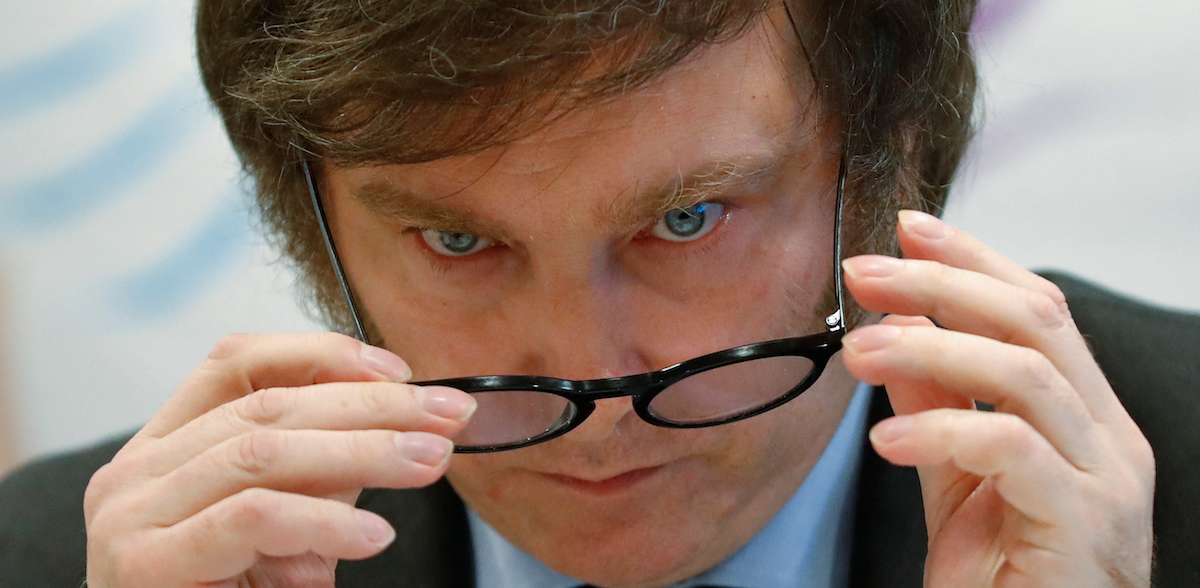Perhaps you’ve heard about Argentina’s new presidential frontrunner. His name is Javier Milei, and his raucous political rallies feature him as a ranting, raving, rock star who wants to “blow up” the country’s political lethargy.
His charisma approaches the level of Donald Trump, a leader he says he admires. He wants to make the US dollar Argentina’s legal currency, close down the country’s central bank, and legalize the sale of human organs without government interference. He has argued that sex education in Argentina’s schools is part of an elite plot to destroy the traditional family.
Milei’s campaign style suggests he’s usually the last to leave the karaoke bar.
And it’s precisely because of his libertarian – some would say anarchic – views and his open hatred for a political class that has failed to pull Argentina from a chronic economic crisis that his star is on the rise.
We know he’s a leading contender because Argentina has a political process that asks voters to indicate their preference for president two months before the election. In August, Milei won a jaw-dropping 30% plus of the vote in a race that included 22 candidates. The main center-right opposition bloc won 28%. The ruling leftist Peronist coalition took 27%.
The election will be held on Sunday, and with an inflation rate of 116% that keeps 40% of the country in poverty, it’s not hard to see why many voters might turn to a self-proclaimed political arsonist.
If this political dynamic sounds familiar, it’s because anti-politician politicians have become a phenomenon in recent years. Trump represented a complete break with the American political class, personified perfectly by Hillary Clinton. In 2018, exhausted by the scandals and stagnating economy under left-wing governments, Brazilian voters turned to profane former paratrooper Jair Bolsonaro.
But this isn’t just a right-wing phenomenon. French voters chose Emmanuel Macron in 2017 in part because he challenged both the center-right and center-left establishment parties that dominated France for decades. Like Macron, Mexico’s Andrés Manuel López Obrador created his own political party and drove it to power in 2018 by challenging a political class perceived as hopelessly corrupt. On the left, Colombia’s Gustavo Petro represented a similar let’s-just-start-over approach to political problem-solving.
It should be noted, however, that Trump was impeached twice, indicted four times, lost his bid for reelection, and is now running again with a national approval rating of 40%. Bolsonaro lost his bid for reelection too, and he’s now banned from running for office for eight years. Macron and Petro have become deeply unpopular. Only López Obrador has managed to defy political gravity while governing as a political outsider.
Argentina’s voters will decide on Sunday just how serious they are about a Javier Milei presidency. The most recent polls say the vote might be close, but Milei remains the favorite.
- Argentina's economy will get a lot worse before it gets better - GZERO Media ›
- How Javier Milei is turning Argentina's economy around - GZERO Media ›
- Milei is beating the odds. Will it last? - GZERO Media ›
- Argentina's President Javier Milei wants his nation "on the side of liberal democracies" - GZERO Media ›
